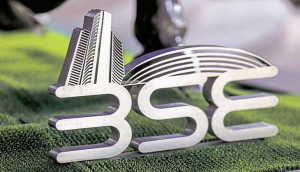
Indian Rupee (INR) has come under renewed pressure against dollar and once again depreciated to a record low of 83.075 against US dollar touching another lifetime low on Thursday. Economists believe that INR will remain under pressure and may see 85 level in short-term period.
Aditi Gupta, economist, Bank of Baroda, told ANI that the weakness in rupee stems more from dollar appreciation than domestic macros. With the dollar gaining strength, other global currencies have come under pressure. However, even now, INR has performed relatively better. INR has depreciated by 10.4 per cent in CYTD22 (up to October 19, 2022), while Chinese yuan has depreciated by 12.1 per cent in the same period. Advanced currencies such as euro, pound and Japanese yen have depreciated by 14 per cent, 17 per cent and 27.2 per cent, respectively, in the same period. Hence INR has been much better placed, she said.
Gupta said that even if we look at the dollar which has strengthened by 18 per cent so far this year, INR's depreciation seems orderly. As a result, both the government and the Reserve Bank of India (RBI) have been comfortable with the depreciation seen in INR. With the global backdrop of a strengthening dollar, INR will remain under pressure. However, the extent to which it may depreciate will depend on how the RBI responds. Overall, we expect a range of 83-85/$ for INR for this year.
Anindya Banerjee, Vice-President, Currency Derivatives & Interest Rate Derivatives at Kotak Securities, said, USDINR spot made an all-time high of 83.23, but now back down to 82.96, on the back of suspected heavy intervention from the RBI. "However, higher US bond yields and weaker Asian currencies against US dollar should keep the pair well supported. We expect a range of 82.60 and 83.40 on spot," Banerjee added.
Manoranjan Sharma, Chief Economist, Infomerics Ratings, told ANI that "Going forward, we see a further fall in the value of the rupee to 85 by December 2022. The fall in the external value of the rupee is attributable to both global and domestic factors. At the global level, there are factors, such as heightened global uncertainty in the wake of the Russia-Ukraine war and the volatility in the price of oil." Sharma said domestically, there are factors, such as the triple deficits-trade deficit, current account deficit, the inflationary spiral reflected both in CPI and WPI terms, the moderation in the GDP growth, and the sharp fall in the foreign exchange reserves from the level of USD 642 billion about a year ago to USD 530 billion now.
Sharma said it was, however, wrong and misleading to look at the value of the INR only in rupee terms since the external value of the local currency was linked to a basket of currencies and the concept of real effective exchange rate index (REER) assumes great significance. Real effective exchange rate is the nominal effective exchange rate (a measure of the value of a currency against a weighted average of several foreign currencies) divided by a price deflator or index of costs.
The REER is calculated by taking the rupee's value against a basket of 40 currencies weighted by their trade with India. In sum, it captures the competitiveness of the rupee against that basket. Sharma said, "This is why it has sometimes been maintained that the rupee did not fall but the US dollar (USD) rose because the correct way of looking at the external value of the rupee -- as in fact it has been so for over 50 years now -- is to examine the rupee movement in relation to a basket of currencies and not just to the USD." "There has been no depreciation of the INR in relation to the Great Britain Pound (GBP), Euro, Japanese Yen, and some other currencies; in fact there has been some appreciation of the INR," Sharma added.
Sharma said that it needs to be stressed that the concept of the REER is neither new nor novel: It has been around in economic literature in general and the Indian economy in particular for well over 50 years. Sharma said hence, things need to be viewed from a proper historical and comparative perspective rather than make a hasty, ill-informed judgement.
(ANI)
Also Read: Indian stocks decline after 4-day gains; Rupee near all-time low







![BJP's Kapil Mishra recreates Shankar Mahadevan’s ‘Breathless’ song to highlight Delhi pollution [WATCH] BJP's Kapil Mishra recreates Shankar Mahadevan’s ‘Breathless’ song to highlight Delhi pollution [WATCH]](https://images.catchnews.com/upload/2022/11/03/kapil-mishra_240884_300x172.png)

![Anupam Kher shares pictures of his toned body on 67th birthday [MUST SEE] Anupam Kher shares pictures of his toned body on 67th birthday [MUST SEE]](https://images.catchnews.com/upload/2022/03/07/Anupam_kher_231145_300x172.jpg)






